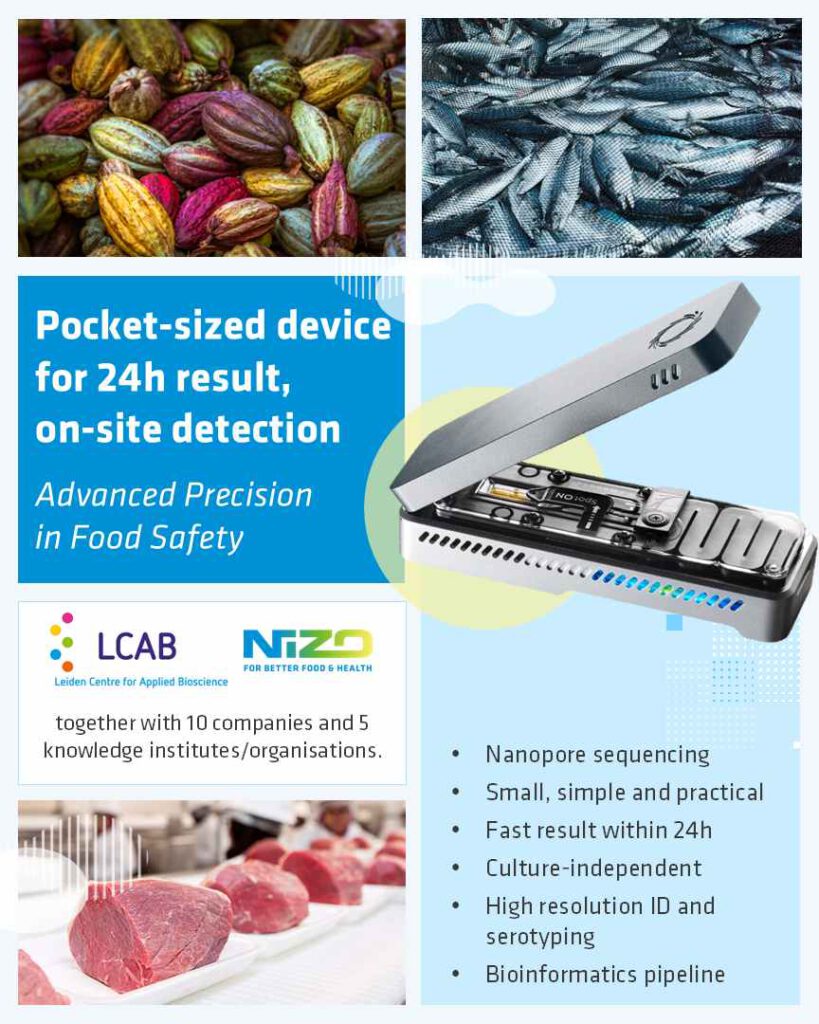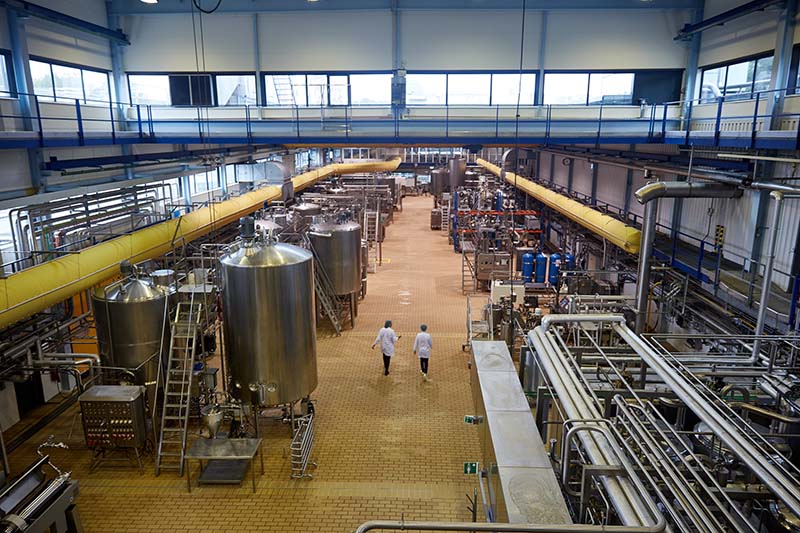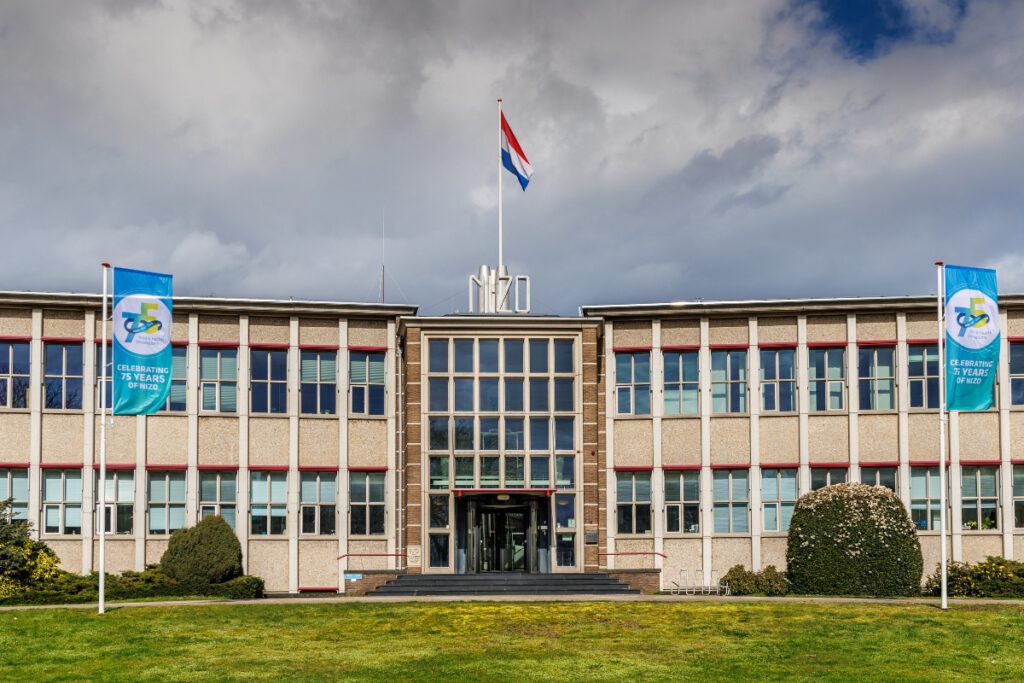We are thrilled to announce that a project featuring NIZO’s active participation on implementing innovative DNA technology for fast detection of pathogens in the food chain has won 2nd place at the 2024 RAAK Award! The jury was impressed by the close involvement of companies in the food processing industry and the way in which the research team has made such technology understandable and accessible to the sector.
NIZO’s participation
In this project, NIZO uses fast Nanopore sequencing for food safety assessments and application in industrial practice.
The research shows how DNA sequencing can help companies in the food processing chain to identify and monitor sources of contamination (such as Listeria monocytogenes, Salmonella enterica, etc) and take preventive measures, which results in fewer cases of illness, food waste and economic damage.
If a food pathogen is found, for instance in a composite meal, the technique used in this product enables faster source identification to more rapidly tackle and mitigate food borne risks.

About the project
In the Netherlands, approximately 600,000 people fall ill each year after eating contaminated food. The food processing industry has a strong need for more control over hygiene monitoring in factories to prevent contaminated products from reaching the shops. In the completed RAAK-mkb project “Precision Food Safety”, the added value of using Whole Genome Sequencing (WGS) was investigated in tracing the transmission routes of the pathogenic bacterium Listeria monocytogenes in food processing companies.
A biobank was built up with almost 600 L. monocytogenes strains from the factory environment and products from fish, meat and vegetable processing companies. These strains were sequenced using Nanopore sequencing. Subsequently, the relationship between the strains was determined using a bioinformatics pipeline developed in the project. The project proved to be very successful.
In “Advanced Precision in Food Safety” the research on food safety is broadened by monitoring L. monocytogenes at the beginning of the food processing chain (in raw materials and ingredients). Furthermore, the WGS methodology will be applied to Salmonella enterica and the current bioinformatics pipeline will be adapted to determine transmission routes of this other important food pathogen.
To deepen the research, the pathogenic nature of L. monocytogenes strains will be determined based on the serotype and the presence of ~60 described virulence genes. Data from various databases, with sequence data of both human and non-human strains, will be compared.
Both in the laboratory and in the factory environment, the effect of various cleaning agents and cleaning techniques on the elimination of L. monocytogenes from surfaces will be investigated.
Furthermore, it is being investigated whether shotgun metagenomics analysis can be used to quickly and widely monitor food for food pathogens.
A prototype of a web application, which allows companies to view and supplement obtained results, will be further developed and tested and implemented by food processing companies.
A huge thank you to the partners in the consortium for their collaboration: Stichting Hogeschool Leiden as the leader of this project, together with 10 companies and 5 knowledge institutes/organisations.
| Dossier | RAAK.MKB18.033 |
| Subsidy | € 308,832 |
| Start date | September 1, 2023 |
| End date | August 31, 2025 |
| Regulation | RAAK-SME |
| Themes | Sustainable agriculture, water and food supply Health and Wellbeing Key technologies and sustainable materials Science and Technology |
Additional reference:
- Astrid Heikema, lector Microbial Genomic LCAB
- https://www.sia-projecten.nl/project/advanced-precision-in-food-safety
- https://news.pressmailings.com/dewolven/persbericht-raak-award-sia-congres-2024
About NIZO Food Research
Based in Ede, the Netherlands, NIZO is a globally leading, private, and independent contract research organization specializing in food and health innovation. Over more than 75 years of development, NIZO has evolved alongside the continuous innovation in the food industry, bringing together experts in many different areas of food science and production, including protein technology, fermentation, bioinformatics, health, food processing, food safety and sensory experiences of food. These steps come together in our NIZO Pilot Plant – the largest open-access food-grade pilot plant in Europe. NIZO leverages the integrated power of science and technology to assist food companies from the laboratory scale to the semi-industrial level. This enables food companies to achieve their innovation goal more successfully, sustainably, and efficiently, ultimately leading to better food and health.
NIZO today focuses on 4 high-value propositions:
- Protein Transition
- Sustainable Processing, Upscaling and Contract Manufacturing
- Fermentation & Food Safety
- Health Benefits Substantiation


Cases
Our latest Blogs
© NIZO 2025 | Sitemap - Privacy Statement - Cookie Statement - Terms & Conditions
Website by: Online Marketing Agency